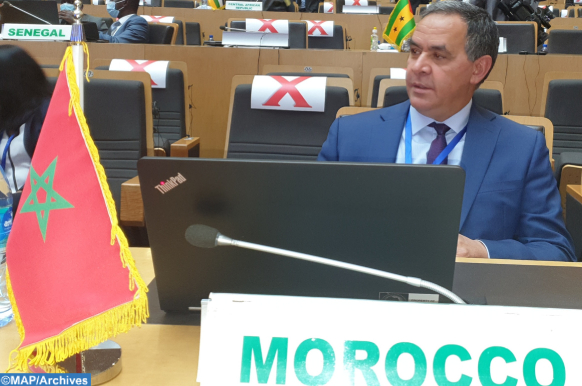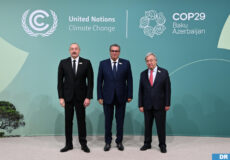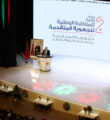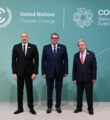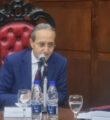Food Security in Africa, Priority for Morocco under Joint African Action – Ambassador Tells AU PSC
Addis Ababa – Food security in Africa is a priority for Morocco within the framework of the joint African action, said Monday in Addis Ababa, the ambassador and Permanent Representative of the Kingdom to the AU and the UNECA, Mohamed Arrouchi.
The Moroccan diplomat, who was speaking at a meeting of the Peace and Security Council (PSC) of the African Union (AU) devoted to food security in Africa, stressed that the Kingdom is a committed actor in the task of consolidating regional security and stability and is determined to strengthen its contribution to the defense of the vital interests of the continent.
Food security is becoming an urgent issue due to the combined effect of population growth, the scarcity of natural resources and concerns about food quality, as well as climate change, Arrouchi noted, stressing the urgent need for economic and social development, and sustainable production systems.
The sustainability of food systems and good nutrition are key areas of Morocco’s policy and commitments to South-South and triangular cooperation at the continental and international levels, he said.
Besides its place in bilateral cooperation, it is at the center of pioneering initiatives launched by His Majesty King Mohammed VI during the Africa Summit for Action held on the sidelines of COP22 in Marrakech in 2016, the diplomat recalled.
In line with its commitments, the Kingdom has placed food security, nutrition and sustainable development at the heart of its new development model for 2035, he added.
Morocco’s efforts to combat food insecurity and eradicate hunger have been crowned by the adoption of a number of strategies, including the National Sustainable Development Strategy 2030, the National Water Strategy, the National Energy Strategy 2030, the National Disaster Risk Management Strategy 2020-2030, the National Climate Plan 2030, and the National Strategic Plan for Adaptation to Climate Change, Arrouchi argued.
The Moroccan delegation stressed the need for joint action in favor of a resilient Africa and master of its destiny, through subregional and regional approaches.
In that regard, it reiterated the responsibility of host countries of refugee camps who are called upon to collaborate with the relevant international bodies and agencies to urgently carry out the census and documentation of the refugees in order to protect their fundamental rights and to avoid the misappropriation of humanitarian aid, while securing appropriate access to food, humanitarian aid and assistance.
The delegation also stressed the requirement to address the effects of climate change, adopt the necessary policies to catalyze Africa’s economic and structural transformation and accelerate initiatives to build the continent’s resilience to the effects of climate change.



